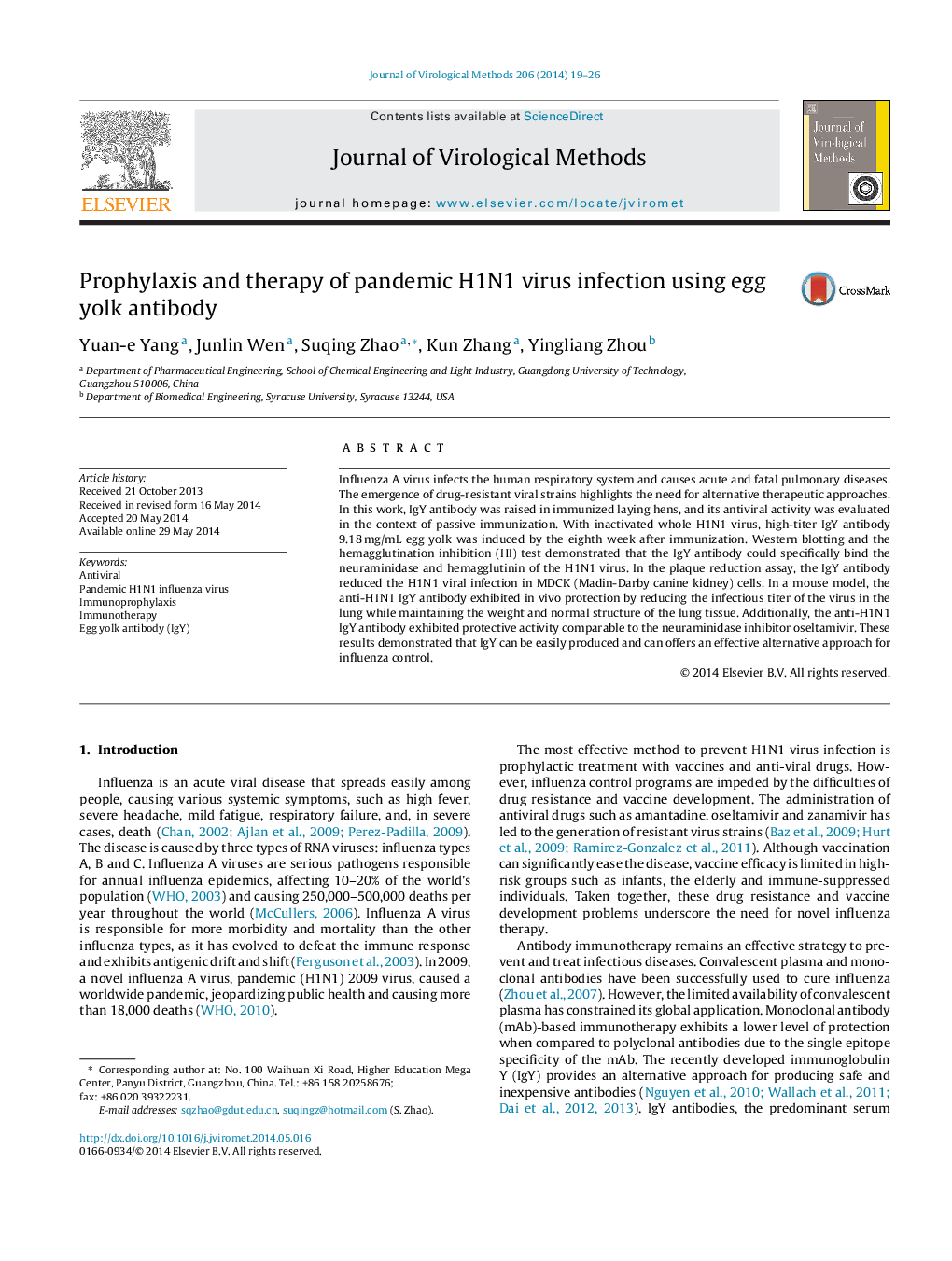| Article ID | Journal | Published Year | Pages | File Type |
|---|---|---|---|---|
| 6133537 | Journal of Virological Methods | 2014 | 8 Pages |
Abstract
Influenza A virus infects the human respiratory system and causes acute and fatal pulmonary diseases. The emergence of drug-resistant viral strains highlights the need for alternative therapeutic approaches. In this work, IgY antibody was raised in immunized laying hens, and its antiviral activity was evaluated in the context of passive immunization. With inactivated whole H1N1 virus, high-titer IgY antibody 9.18Â mg/mL egg yolk was induced by the eighth week after immunization. Western blotting and the hemagglutination inhibition (HI) test demonstrated that the IgY antibody could specifically bind the neuraminidase and hemagglutinin of the H1N1 virus. In the plaque reduction assay, the IgY antibody reduced the H1N1 viral infection in MDCK (Madin-Darby canine kidney) cells. In a mouse model, the anti-H1N1 IgY antibody exhibited in vivo protection by reducing the infectious titer of the virus in the lung while maintaining the weight and normal structure of the lung tissue. Additionally, the anti-H1N1 IgY antibody exhibited protective activity comparable to the neuraminidase inhibitor oseltamivir. These results demonstrated that IgY can be easily produced and can offers an effective alternative approach for influenza control.
Related Topics
Life Sciences
Immunology and Microbiology
Virology
Authors
Yuan-e Yang, Junlin Wen, Suqing Zhao, Kun Zhang, Yingliang Zhou,
